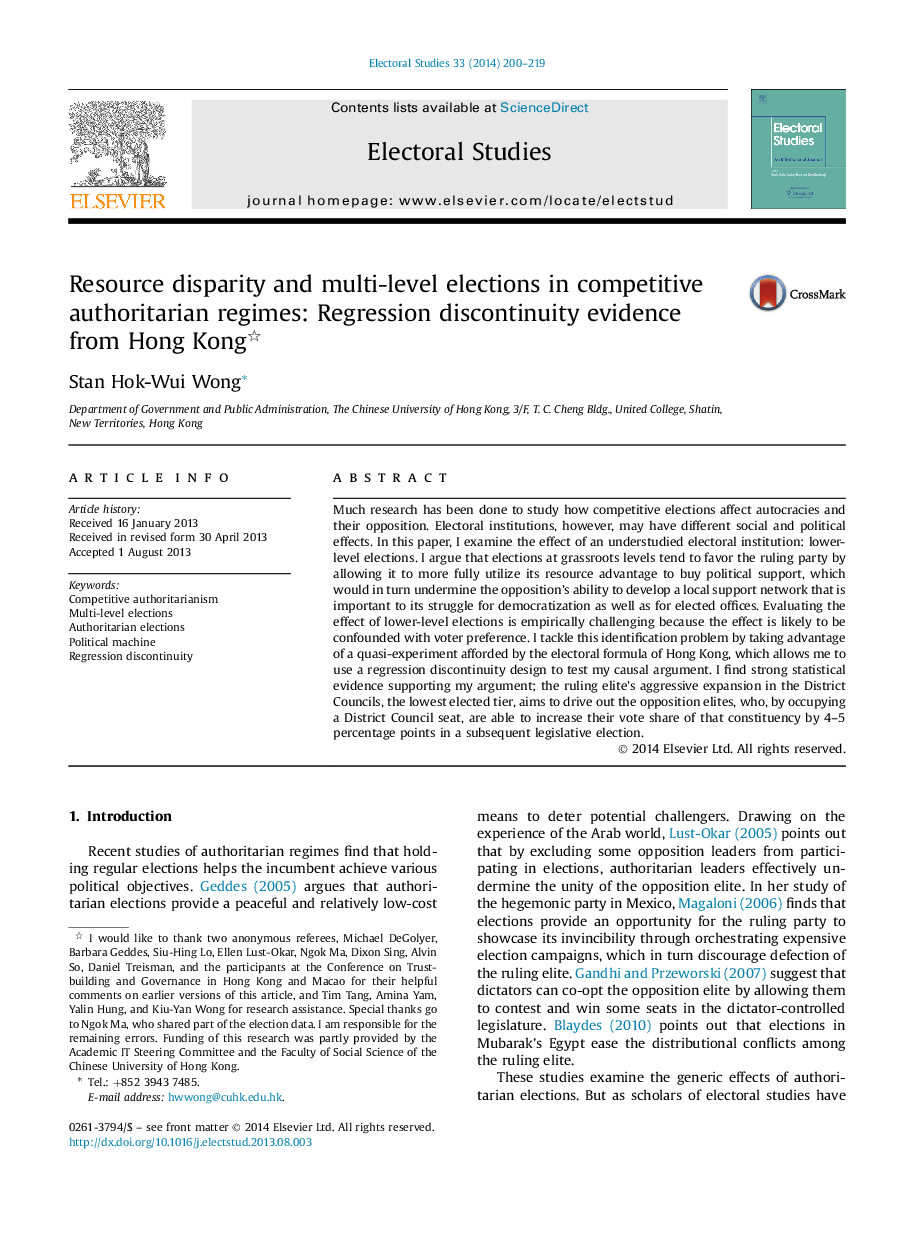| Article ID | Journal | Published Year | Pages | File Type |
|---|---|---|---|---|
| 1051904 | Electoral Studies | 2014 | 20 Pages |
•Grassroots elections help authoritarian regimes weaken opposition parties.•This is because grassroots elections maximize the ruling party's resource advantage.•I apply a regression discontinuity design to study multi-level elections in Hong Kong.•The ruling parties have effectively weakened the opposition with low-level elections.
Much research has been done to study how competitive elections affect autocracies and their opposition. Electoral institutions, however, may have different social and political effects. In this paper, I examine the effect of an understudied electoral institution: lower-level elections. I argue that elections at grassroots levels tend to favor the ruling party by allowing it to more fully utilize its resource advantage to buy political support, which would in turn undermine the opposition's ability to develop a local support network that is important to its struggle for democratization as well as for elected offices. Evaluating the effect of lower-level elections is empirically challenging because the effect is likely to be confounded with voter preference. I tackle this identification problem by taking advantage of a quasi-experiment afforded by the electoral formula of Hong Kong, which allows me to use a regression discontinuity design to test my causal argument. I find strong statistical evidence supporting my argument; the ruling elite's aggressive expansion in the District Councils, the lowest elected tier, aims to drive out the opposition elites, who, by occupying a District Council seat, are able to increase their vote share of that constituency by 4–5 percentage points in a subsequent legislative election.
